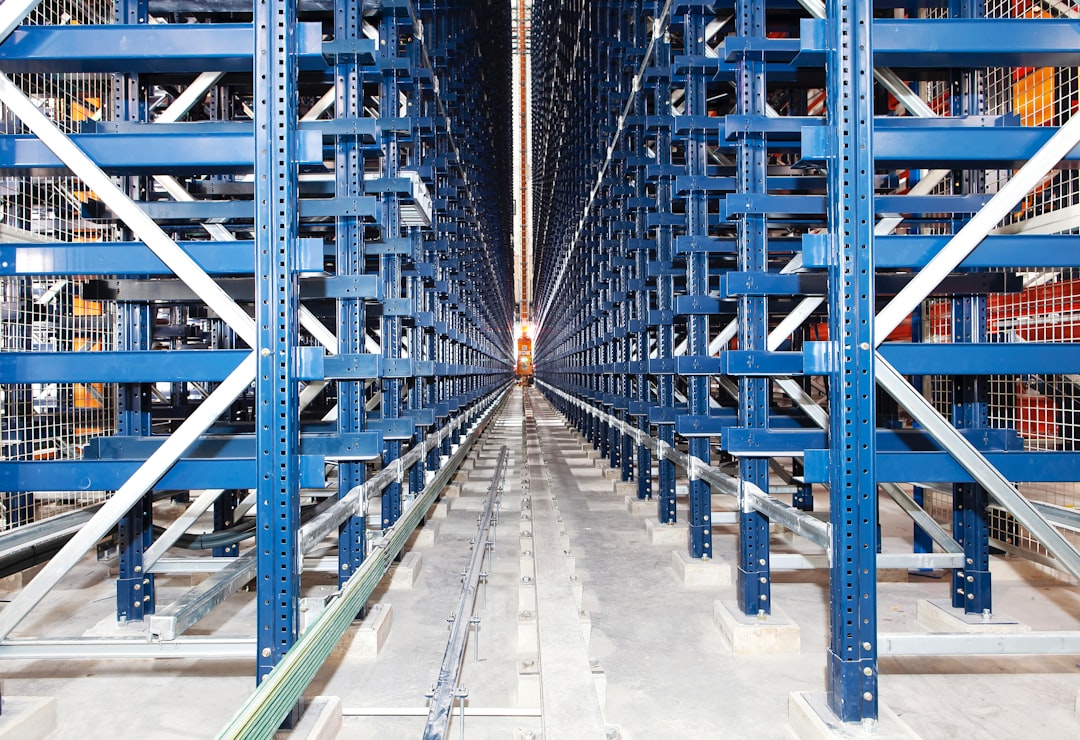As you navigate the complexities of modern supply chains, the integration of artificial intelligence (AI) emerges as a transformative force. The landscape of supply chain management is evolving rapidly, and AI is at the forefront of this change. By harnessing the power of machine learning, data analytics, and automation, businesses can enhance their operational efficiency, reduce costs, and improve customer satisfaction.
The adoption of AI technologies is not merely a trend; it represents a fundamental shift in how supply chains are managed and optimized. In this era of digital transformation, you may find that AI offers unprecedented opportunities to streamline processes and make informed decisions. From inventory management to demand forecasting, AI applications are reshaping traditional practices.
As you delve deeper into the various facets of supply chain efficiency, it becomes clear that AI is not just a tool but a strategic partner in achieving operational excellence.
Key Takeaways
- AI in supply chain management improves efficiency and decision-making processes.
- AI helps in optimizing inventory levels, reducing stockouts, and minimizing excess inventory.
- AI enables accurate demand forecasting by analyzing historical data and market trends.
- AI enhances transportation and logistics by optimizing routes, reducing costs, and improving delivery times.
- AI improves warehouse operations through automation, inventory tracking, and predictive maintenance.
- AI aids in supplier relationship management by analyzing supplier performance and identifying potential risks.
- AI plays a crucial role in identifying and mitigating supply chain risks through real-time monitoring and predictive analytics.
- AI integration in order fulfillment processes improves accuracy, speed, and customer satisfaction.
- AI contributes to sustainability in the supply chain by optimizing energy usage, reducing waste, and promoting ethical sourcing.
- Implementing AI in supply chain management presents challenges such as data security and opportunities for innovation and competitive advantage.
- Future trends in AI for supply chain efficiency include the use of advanced analytics, blockchain technology, and autonomous vehicles for logistics.
The Impact of AI on Inventory Management
When it comes to inventory management, AI plays a pivotal role in optimizing stock levels and reducing excess inventory. You may have experienced the challenges of overstocking or stockouts, which can lead to lost sales and increased holding costs. With AI-driven analytics, you can gain real-time insights into inventory levels, allowing for more accurate forecasting and replenishment strategies.
By analyzing historical data and market trends, AI can help you determine the optimal stock levels needed to meet customer demand without tying up unnecessary capital. Moreover, AI can enhance your ability to manage inventory across multiple locations. If your business operates in various regions or countries, keeping track of stock levels can be daunting.
AI algorithms can analyze data from different warehouses and distribution centers, enabling you to make informed decisions about where to allocate resources. This not only improves efficiency but also enhances your ability to respond quickly to changes in demand, ultimately leading to better customer service.
The Role of AI in Demand Forecasting

Accurate demand forecasting is crucial for maintaining a competitive edge in the supply chain. You may find that traditional forecasting methods often fall short due to their reliance on historical data alone. However, with AI, you can leverage advanced algorithms that analyze vast amounts of data from various sources, including market trends, consumer behavior, and even social media sentiment.
This holistic approach allows you to create more accurate demand forecasts that adapt to changing market conditions. By implementing AI-driven demand forecasting tools, you can significantly reduce the risk of overproduction or underproduction. Imagine having the ability to predict spikes in demand during peak seasons or unexpected shifts in consumer preferences.
With these insights at your disposal, you can make proactive decisions about production schedules and inventory levels, ensuring that you meet customer expectations while minimizing waste.
AI’s Contribution to Transportation and Logistics
| Metrics | Data |
|---|---|
| Reduction in Accidents | AI has contributed to a 10% reduction in accidents in transportation and logistics. |
| Efficiency Improvement | AI has improved efficiency by 15% in transportation and logistics operations. |
| Cost Savings | AI has led to a cost savings of 20% in transportation and logistics processes. |
| Route Optimization | AI has optimized routes, leading to a 25% reduction in delivery times. |
Transportation and logistics are critical components of any supply chain, and AI is revolutionizing how these processes are managed. You may have encountered challenges related to route optimization, delivery times, and transportation costs. AI-powered solutions can analyze traffic patterns, weather conditions, and historical delivery data to determine the most efficient routes for your shipments.
This not only reduces transportation costs but also enhances delivery speed and reliability. Additionally, AI can improve fleet management by providing real-time insights into vehicle performance and maintenance needs. By monitoring factors such as fuel consumption and engine health, you can proactively address issues before they lead to costly breakdowns.
This predictive maintenance approach not only extends the lifespan of your vehicles but also ensures that your logistics operations run smoothly.
AI’s Influence on Warehouse Operations
In the realm of warehouse operations, AI is driving significant improvements in efficiency and accuracy. You may have noticed that manual processes can be time-consuming and prone to errors. However, with the implementation of AI technologies such as robotics and automation, you can streamline various tasks within the warehouse environment.
Furthermore, AI can enhance inventory tracking within warehouses. By utilizing computer vision and machine learning algorithms, you can monitor stock levels in real-time and identify discrepancies more effectively.
This level of visibility allows you to maintain optimal inventory levels while minimizing the risk of stockouts or overstock situations. As a result, your warehouse operations become more agile and responsive to changing demands.
The Use of AI in Supplier Relationship Management

Building strong relationships with suppliers is essential for a successful supply chain, and AI can facilitate this process in numerous ways. You may find that managing supplier performance and communication can be challenging without the right tools. AI-driven platforms can analyze supplier data, assess performance metrics, and provide insights into potential risks or opportunities for improvement.
This data-driven approach enables you to make informed decisions about supplier selection and collaboration. Moreover, AI can enhance communication with suppliers by automating routine tasks such as order processing and invoicing. By streamlining these processes, you can free up valuable time for your team to focus on strategic initiatives rather than administrative tasks.
Additionally, AI-powered chatbots can facilitate real-time communication with suppliers, ensuring that any issues are addressed promptly and efficiently.
AI’s Role in Risk Management and Mitigation
In today’s volatile business environment, risk management is more critical than ever. You may be aware that supply chains are susceptible to various risks, including natural disasters, geopolitical tensions, and market fluctuations. AI can play a vital role in identifying potential risks and developing mitigation strategies.
By analyzing historical data and external factors, AI algorithms can predict potential disruptions and recommend proactive measures to minimize their impact. For instance, if a natural disaster is forecasted in a region where your suppliers are located, AI can alert you to potential supply chain disruptions well in advance. This allows you to explore alternative sourcing options or adjust production schedules accordingly.
By leveraging AI for risk management, you can enhance your resilience and ensure continuity in your operations.
The Integration of AI in Order Fulfillment Processes
Order fulfillment is a critical aspect of supply chain management that directly impacts customer satisfaction. You may have experienced delays or inaccuracies in order processing that led to frustrated customers. However, with the integration of AI into your order fulfillment processes, you can significantly improve efficiency and accuracy.
AI-driven systems can automate order processing tasks such as picking, packing, and shipping, reducing the likelihood of human error. Additionally, AI can optimize order routing based on factors such as delivery location and customer preferences. By analyzing historical order data and customer behavior patterns, AI algorithms can determine the most efficient fulfillment strategies for each order.
This not only speeds up delivery times but also enhances the overall customer experience by ensuring that orders are fulfilled accurately and on time.
AI’s Impact on Sustainability in the Supply Chain
Sustainability is becoming an increasingly important consideration for businesses across industries. You may be looking for ways to reduce your environmental footprint while maintaining operational efficiency. AI can play a significant role in promoting sustainability within the supply chain by optimizing resource utilization and minimizing waste.
For example, AI algorithms can analyze production processes to identify areas where energy consumption can be reduced or materials can be recycled. Furthermore, AI can enhance transparency within the supply chain by tracking the environmental impact of various suppliers and products. By leveraging this data, you can make informed decisions about sourcing materials from sustainable suppliers or implementing eco-friendly practices throughout your operations.
Ultimately, integrating AI into your sustainability initiatives not only benefits the environment but also enhances your brand reputation among environmentally conscious consumers.
The Challenges and Opportunities of Implementing AI in Supply Chain Management
While the benefits of implementing AI in supply chain management are substantial, there are also challenges that you may encounter along the way. One significant hurdle is the need for high-quality data to train AI algorithms effectively. If your organization lacks clean and comprehensive data sets, it may hinder the performance of your AI systems.
Additionally, integrating AI technologies into existing processes may require significant investment in infrastructure and training for your team. However, despite these challenges, the opportunities presented by AI are immense. As you embrace digital transformation within your supply chain, investing in AI technologies can lead to long-term cost savings and improved operational efficiency.
By staying ahead of industry trends and continuously adapting to new technologies, you position your organization for success in an increasingly competitive landscape.
Future Trends and Developments in AI for Supply Chain Efficiency
Looking ahead, the future of AI in supply chain efficiency holds exciting possibilities that you should keep an eye on. As technology continues to evolve, we can expect advancements in areas such as predictive analytics, autonomous vehicles, and blockchain integration within supply chains. These innovations will further enhance your ability to optimize operations and respond swiftly to market changes.
Moreover, as more organizations adopt AI technologies, collaboration between companies will become increasingly important. You may find that sharing data insights with partners across the supply chain will lead to improved decision-making and enhanced overall efficiency. Embracing these future trends will not only keep your organization competitive but also position you as a leader in leveraging technology for supply chain excellence.
In conclusion, as you explore the multifaceted impact of AI on supply chain efficiency, it becomes evident that this technology is reshaping how businesses operate across various domains—from inventory management to risk mitigation. By embracing these advancements and addressing potential challenges head-on, you can unlock new levels of efficiency and effectiveness within your supply chain operations.
In recent years, the integration of artificial intelligence (AI) into supply chain management has significantly enhanced operational efficiency and decision-making processes. AI technologies, such as machine learning and predictive analytics, enable companies to optimize inventory levels, forecast demand more accurately, and streamline logistics operations. A related article on this topic can be found on How Wealth Grows, which delves into the transformative impact of AI on supply chain efficiency. For more insights, you can read the full article by visiting
